-
About
- About Listly
- Community & Support
- Howto
- Chrome Extension
- Bookmarklet
- WordPress Plugin
- Listly Premium
- Privacy
- Terms
- DMCA Copyright
- © 2010-2025 Boomy Labs


 Roger Conner
Roger Conner
Listly by Roger Conner
These tools empower educators and the public with resources to counter scientific myths, strategic misinformation/disinformation campaigns, and misunderstandings.
Agnotology is the study of culturally induced ignorance or doubt, particularly the publication of inaccurate or misleading scientific data. More generally, the term also highlights the increasingly common condition where more knowledge of a subject leaves one more uncertain than before.
The internet is helping propagate ignorance – it is a place where everyone has a chance to be their own expert which makes them prey for powerful interests wishing to deliberately spread ignorance. Here is a list of tools to help you combat that ignorance and misinformation.
Click ADD TO LIST button at the top to share your own tools to combat misinformation!

Debunking myths is problematic. Unless great care is taken, any effort to debunk misinformation can inadvertently reinforce the very myths one seeks to correct. To avoid these “backfire effects”, an effective debunking requires three major elements. First, the refutation must focus on core facts rather than the myth to avoid the misinformation becoming more familiar. Second, any mention of a myth should be preceded by explicit warnings to notify the reader that the upcoming information is false. Finally, the refutation should include an alternative explanation that accounts for important qualities in the original misinformation.

A crowdsourced evidence aggregator that answers science questions neutrally, comprehensively, transparently. This is very cool and free!
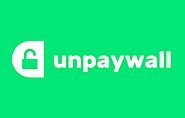
Read paywalled research papers (primary sources) for free. Click the green tab and skip the paywall. It's fast, free, and legal, powered by our database of millions of author-uploaded PDFs.

What's Really Warming the World? Climate deniers blame natural factors; NASA data proves otherwise. Skeptics of manmade climate change offer various natural causes to explain why the Earth has warmed 1.4 degrees Fahrenheit since 1880. However, can these account for the planet’s rising temperatures? Explore to see how much different factors, both natural and industrial, contribute to global warming, based on findings from NASA’s Goddard Institute for Space Studies.

CO2.Earth makes it easy for you and other people around the world to track key planetary changes as they happen. Visit CO2.Earth at your convenience to get the latest readings for atmospheric CO2, global temperature, global emissions, and pH in seawater.
This citizen-launched website saves you and other interested citizens from needing to figure out where on the internet to find source data and information that provides a current and holistic picture of what is happening to the planet we inhabit. It brings it all together in formats that people can use whether they know a little or a lot about global earth system change. The site is a kind of global online learning place where non-specialists can discover and explore some of the best sources of knowledge about our planet.

Free educational resources, including lesson plans, artifacts and unique videos support learning in history, media literacy and civics. Register for a free account to get even more. This is a great resource.
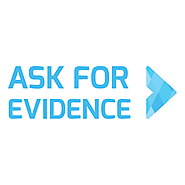
Sense about Science challenges the misrepresentation of science and evidence in public life. Their primary program is Ask for Evidence which provides a system for asking for the evidence from claim makers concerning certain scientific claims that they may make.
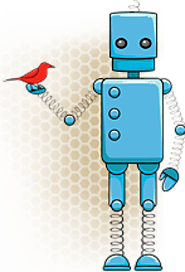
SciStarter connects people to citizen science projects, citizen scientists, and resources. Real science we can do together. Citizen science is a great way to connect students and the public with research in an authentic manner so they gain a greater understanding of the process of scientific discovery.

The world’s first multidisciplinary Open Access journal, PLOS ONE accepts scientifically rigorous research, regardless of novelty. PLOS ONE’s broad scope provides a platform to publish primary research, including interdisciplinary and replication studies as well as negative results. The journal’s publication criteria are based on high ethical standards and the rigor of the methodology and conclusions reported. PLOS ONE features reports of original research from all disciplines within science and medicine and is completely free!

This helpful resource lists over 30 pages of known fake news sources and provides up-to-date guidance on how to identify fake sites and sources.

FactCheck is a nonpartisan, nonprofit “consumer advocate” for voters that aims to reduce the level of deception and confusion in U.S. politics. They monitor the factual accuracy of what is said by major U.S. political players.
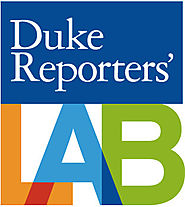
The Reporters’ Lab maintains a database of global fact-checking sites. You can use the map to explore sites around the world or use the menu below. (Here’s more how we identify fact-checkers.)

Science and technology are embedded in virtually every aspect of modern life. As a result, people face an increasing need to integrate information from science with their personal values and other considerations as they make important life decisions about vaccinating their children and other medical care, the safety of foods, what to do about climate change, and many other issues. Communicating science effectively, however, is a complex task and an acquired skill. Moreover, the approaches to communicating science that will be most effective for specific audiences and circumstances often are not obvious. Fortunately, an expanding science base from diverse disciplines can support science communicators in making these determinations.

The PHEME research project develops methods to assesses big data veracity and the truthfulness of stories that go viral on social media platforms
This system tracks rumors in real time and updates their status as unverified, true, or false based on supporting information from verified sources.

The Checkology® virtual classroom is where students learn how to navigate the challenging information landscape by mastering the skills of news literacy. The virtual classroom’s 12 core lessons help educators equip their students with the tools to evaluate and interpret the news and learn how to determine what news and information to trust, share and act on. Free access!

The allows you to view historical and projected climate trends and assess the impacts of climate change on the things you care about
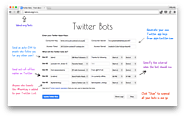
Learn how you can create your own Twitter bots without writing a single line of code. The bots can favorite, retweet, reply tweets or even send DMs to users. You can use this bot to automatically communicate scientific concepts and correct misinformation in real time.

The Zooniverse enables everyone to take part in real cutting edge research in many fields across the sciences, humanities, and more. This is a great citizen science portal for connecting and creating projects.

The mission of Understanding Science is to provide a fun, accessible, and free resource that accurately communicates what science is and how it really works. The process of science is exciting, but standard explanations often miss its dynamic nature. Science affects us all everyday, but people often feel cut off from science. Science is an intensely human endeavor, but many portrayals gloss over the passion, curiosity, and even rivalries and pitfalls that characterize all human ventures. Understanding Science gives users an inside look at the general principles, methods, and motivations that underlie all of science.

Climate change is real, so why the controversy and debate? Learn to make sense of the science and to respond to climate change denial.
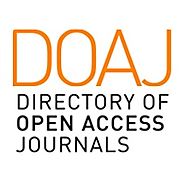
DOAJ is an online directory that indexes and provides access to quality open access, peer-reviewed journals for free.

The Media Watch on Climate Change is a comprehensive and continuously updated knowledge repository on climate change and related environmental issues. The dashboard provides interactive means to access this repository, analyze stakeholder perceptions, and track emerging trends.

SSRN, a scholarly research preprint repository and online community, believes in providing “tomorrow’s research today." Many sections provide completely free access, free access with University login, or a small annual subscription charge. This is a great way to access a variety of scientific papers across a variety of disciplines.

A pioneering Web intelligence solution for aligning global environmental indicators with related communication flows across online channels.
